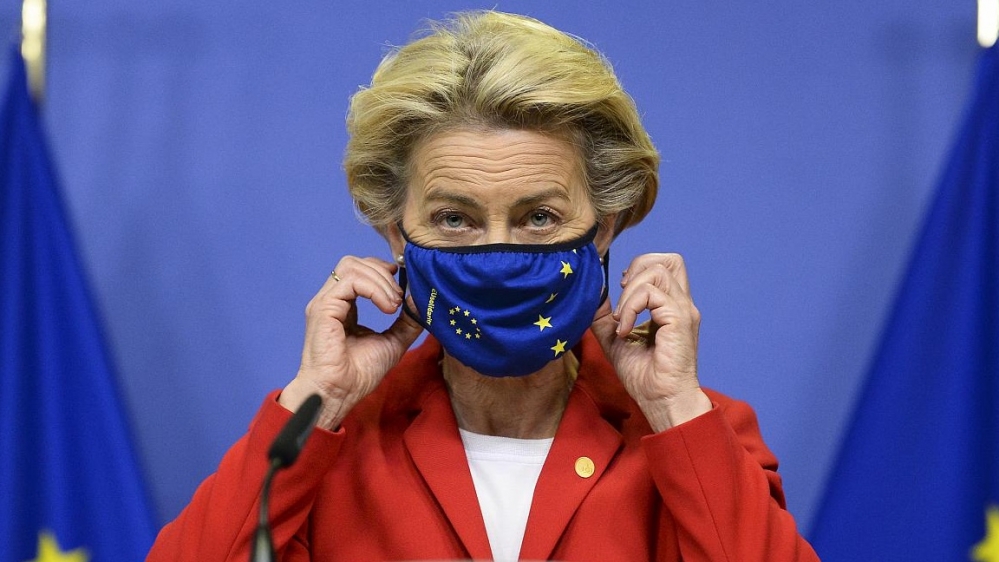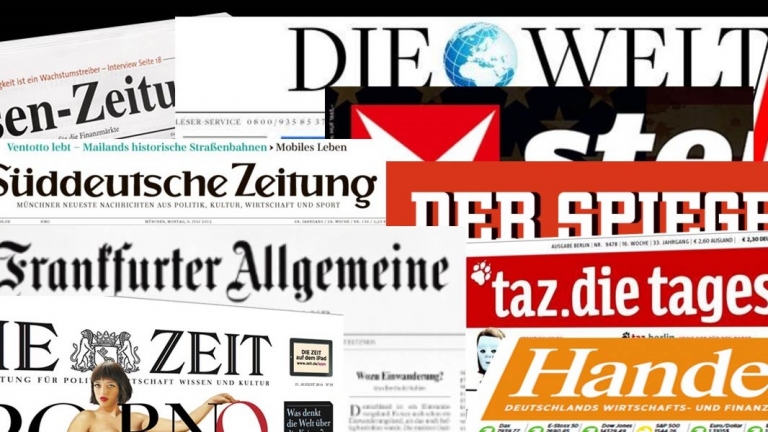When the vaccination campaign against the Covid-19 virus began last december, it was to be a triumph of EU „solidarity”. The EU had centrally ordered hundreds of millions of doses, for 2,5 billion Euros, to be distributed equally amongst all members. This was heralded as a brilliant illustration of why the EU can solve big problems better than nation states. Sadly, it has not been the success story Eurocrats had hoped for. The EU is setting records only in the sense that it is much later and slower than others in protecting it’s citizens’ lives againt the Coronavirus.
Even in patient Germany, one of the staunchest supporters of a more integrated EU, and thus also a supporter of an integrated EU approach to Covid vaccinations, tempers frayed.
The EU had neglected to reserve vaccines in sufficient quantities, and had failed to obtain sales contracts with guaranteed delivery dates. Instead, there are „pre-contracts” that, as one German politician put it, „aren’t worth the paper they are written on”. As a result, once vaccines became available, the companies producing them seem to be giving preference to countries ready to pay higher prices – thus slowing deliveries to the EU, who’s whole argument for a „European” strategy had been to guarantee lower prices.
Also, it seems that producers agreed to deliver more than they could realistically produce. By now, three companies have stated that they cannot deliver as agreed: Pfizer-BioNTech, Modena and AstraZeneca. In fact, EU commission president Ursula von der Leyen got so angry that she intervened personally, with a phone call to the CEO of Pfizer. Italy is preparing to sue Pfizer and has had to change its vaccination schedule, losing at least a month due to slow deliveries.
In Hungary, vaccinations are being administered at only a fraction of actual capacity, according to health officials – due to slow arrival of the EU-organized Pfizer-BioNTech shots. By January 24th, 80 percent of health care workers had been vaccinated.
Meanwhile, 1,63 million people had been vaccinated in Germany by January 23rd. That amounted to almost 2 percent of the population, somewhat better than in Hungary (1,6 percent). That did not compare favorably with Israel (3,6 million people vaccinated as of January 24th, more than a third of the total population of 9 million) or the UK (6,8 million as of January 23th, more than 10 percent of the population of 66,5 million).
There are five reasons.
1. Authorization delay: The EU was later than others to authorize the Pfizer-BioNtech vaccine (the first one to become available) and thus lost valuable time. The UK authorized use on December 2nd, the EU on December 21st. Even then, the EU preferred to delay the start of vaccinations until the 27th, in order to ensure that all member states could start vaccinating on the same day. It was meant to be a symbol of unity: The EU at its best. In fact, it was the EU at its worst. This delay may have cost lives.
2. Negotiation failures: The EU ordered insufficient quantities of the first vaccine to obtain authorization, that of Pfizer-BioNTech. 200 million doses were initially reserved (with options for a total of 600 million), enough for 100 million of the EU’s 450 million inhabitants. The reason given is that, at the time, it was not clear that Pfizer’s vaccine would be ready first, so large quantities were also reserved from other producers. There may be a more political background: A report in „Die Welt” suggests Germany exerted pressure in Brussels to get the EU to order a large quantity of vaccines from the German company Curevac – the slowest to develop its product, and still far away from getting authorization to use it. Reserving up to 405 million doses from Curevac may have meant that the EU needed to order less from others. Critics are now demanding that the EU commission should publish the protocols of the vaccine negotiations.
3. Vaccination strategies: Part of the difference in figures is due to differences in strategy. In the UK, the emphasis is on inoculating as many people as quickly as possible with a first dose. Two are necessary to boost protection against the virus to 95 percent, but the first shot should already offer immunity for 2-3 weeks. So in the UK, anti-Covid shots are administered as soon as the vaccines are produced and distributed. France, one of the slowest performers, keeps half of it’s doses in reserve, in order to ensure that it will be able to give the all-important second shot to everyone. Still, that doesn’t explain everything. Denmark also uses every available dose as soon as it enters the country, but has proportionally vaccinated less than half as many people as the UK.
4. Organizational failures: The UK was quick and unconventional in setting up a system where no citizen would be farther than 10 miles (16 kilometers) from a vaccination center. Pharmacies, doctors, even supermarkets are involved in the effort. The military is helping to transport the vaccines, 200.000 volunteers have registered to help various ways. In the EU, on the contrary, policy is to not involve private providers. The reason given is that this could undermine the public health care system. And in Germany, in contrast to the U.K.’s centralized organization of the campaign, the 16 federal states each independently organize distribution.
5. Vaccine skepticism: Only 40 percent of French citizens are willing to get vaccinated, according to opinion polls. It is the most anti-vax country in the world – which led French president Emmanuel Macron to deplore that this was „not worthy of France”. In Hungary, most citizens initially had doubts about how safe the vaccine would be, but the latest figures of the statistics authority KSH show that 60 percent are definetly or „maybe” planning to get inoculated. This compares to 69 percent of U.K. and 77 percent of US citizens.
So - was it a good idea to let the EU take the lead in getting people vaccinated? Probably, for smaller, poorer countries with weak governance. For countries like Bulgaria it would have been a challenge to compete with the whole world in negotiations with companies like Pfizer.
In fact, it may be time to look for other sources to acquire safe vaccines, in Russia or China. Human lives are at stake. Hungary has now ordered 2 million doses of the russian vaccine „Sputnik V”.
The author is the Head of MCC Media School, journalist, correspondent for German-language newspapers for decades.
Cover photo: euronews










